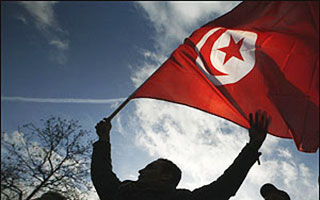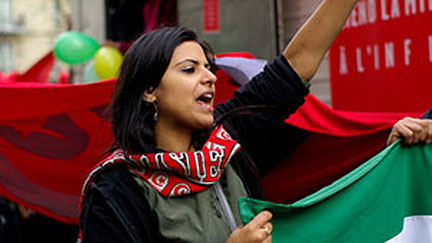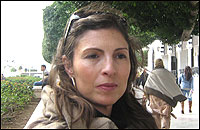Arab Spring
Council of Europe and Arab Spring

After Secretary General Thorbjørn Jagland visited Tunisia in February and offered the Council of Europe's practical cooperation, efforts are underway – from the Parliamentary Assembly and the Venice Commission, to the Pompidou Group and the North-South Centre.
The Council of Europe supports women’s rights in Africa and the Middle East

Women have been at the forefront of the Arab Spring. Many relished the promise of positive change when a series of democratic uprisings erupted in Tunisia and spread across Egypt, Libya, Yemen, Syria and the Gulf.
Women took a stand for civil society across the region and strove for a new sense of equality, long suppressed under old, patriarchal regimes.
"By offering a platform to speak out for women's rights, the Council of Europe plays its part to keep women's rights in Arab Spring countries in focus", said author and journalist Souhayr Belhassen, joint winner of the Council of Europe's North-South Prize this year. During a visit to Strasbourg on 12 March 2012, she highlighted a petition published worldwide and signed by thousands of people – including celebrities – urging Arab Spring countries to treat women with dignity, equality and respect.
On the occasion of women's day, Council of Europe Secretary General Thorbjørn Jagland said: "It is important for all of us to recognise the contribution of women in driving progress and reform, and it is essential that women's voices are now heard in building new Arab societies, and in fighting discrimination and stereotypes. If women are again left out, the promising Arab Spring could become a new winter."
© Antoine Walter / Tunisia, 15 January 2011
Arab Spring: overcoming violence and upholding women's rights
The assassination in February of Tunisian opposition leader Chokri Belaid drew worldwide condemnation as a dangerous detour on Tunisia's path to democracy. It seemed further proof that the flower of the Arab Spring has become wilted.
But despite the violence, efforts continue to promote democracy, the rule of law and human rights in the region. As Jean-Claude Mignon – president of the Parliamentary Assembly of the Council of Europe – proclaimed at the time: The assassination "will not lessen the resolve of the Tunisian people to consolidate democracy and the rule of law."
Several Council of Europe initiatives – in March alone this year – reflect continued resolve.
Members of the Council of Europe's Parliamentary Assembly met in Rabat to assess the progress of reforms in Morocco. The Council of Europe held a launching conference of a new School of Political Studies in Rabat. Also in Rabat, Council of Europe drug policy experts organised a round table for a national drug prevention strategy in Morocco. Societal challenges like drug abuse can be more threatening in times of transition.
In Tunis, representatives of the Council of Europe's Venice Commission – an independent group of legal experts who hold four annual plenary sessions there – participated in a symposium on reforming Tunisia's judiciary, focusing on its independence. Members of Tunisia's Constituent Assembly meet regularly with Venice Commission representatives to assess progress for the country's new constitution. (more...)

An award-winning journalist, Olfa Belhassine is not only a top reporter for the Tunisian daily "La Presse", but has also published articles on the Arab Spring this year in major French publications including "Le Monde" and "Libération".

